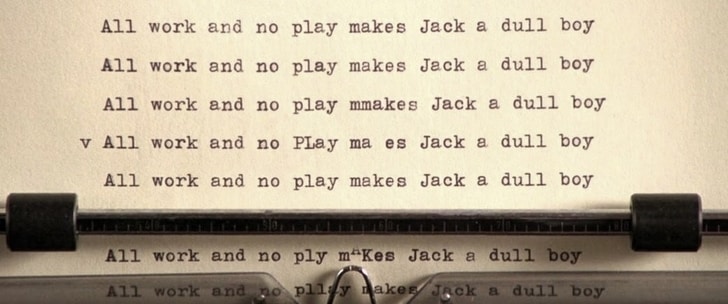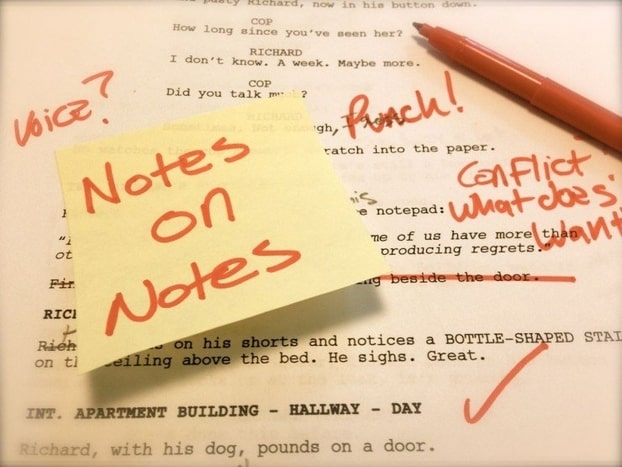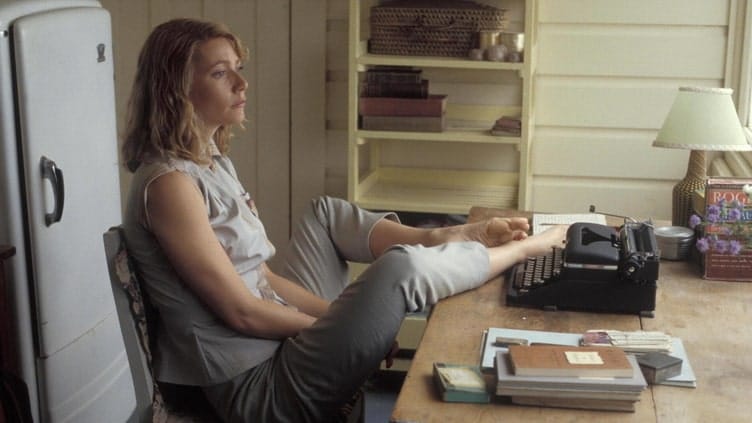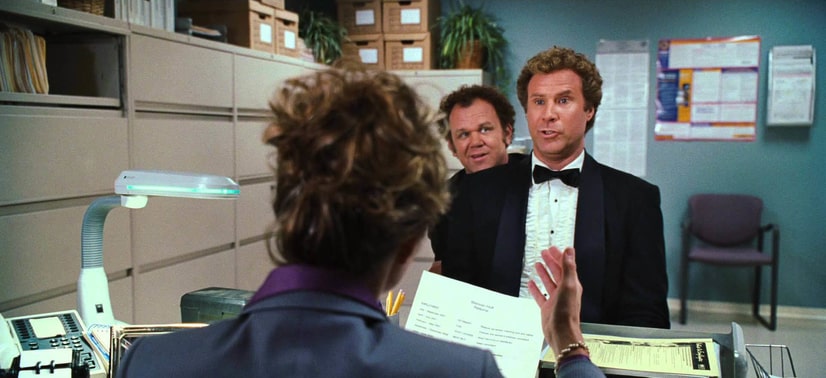Table of Contents
What is Feedback?
Feedback is an essential part of the creative process for any artist. And this is especially true for those in the film and TV industry, where collaboration is a core part of all endeavours. But knowing how to handle feedback well is not an asset that comes instantly to all writers. Instead, it’s often a skill of its own that needs work.
“praise or criticism given in response to something you do…”
– from The Cambridge English Dictionary
Feedback can come in many forms, and asking for it might not be easy. Though asking (and getting) feedback can be daunting, it is an essential part of the creative process. A screenplay without feedback can’t be trusted. Not even the best screenwriters in the world will go through the creative process without receiving feedback. Feedback is likely to come at every point in the development process and beyond.
So as a writer and creative in general, knowing how to handle feedback is a vitally important skill. Therefore, we’ve lined up some tips so you can be prepared for handling feedback effectively and properly.
Why is Feedback So Important for Writers?
Writing tends to be a solitary job. Writers can go for days or months or even years without talking to anyone about their work. And this can take a toll. Receiving feedback is therefore an important way for a writer to know that they are on track and that their concept is coming across properly.
In addition, because filmmaking is a collaborative effort, it is important that writers are able to validate their ideas. As a screenwriter, you can’t be overly precious about your work. You have to accept that it will be shared, discussed, changed and influenced by those working on it and eventually, by audiences.
So making sure you can handle feedback is a key way of making sure you get it in the first place. If you’re not good at handling feedback, you’re more likely to avoid it altogether. It’s, therefore, important you get used to it.
Rejection is just a part of screenwriting and filmmaking. And receiving proper feedback in time can save you from rejection, but also allow you to understand it. Moreover, this is vital for rewriting, because it gives you a clear path to follow and the tools to focus on what’s important.

Is All Feedback Equally Valuable?
In short, it’s not. But let’s go through the long road. All feedback can be helpful, and it should always be appreciated. Someone is taking the time to go through your work, so thank them. However, not all feedback will actually give you value. Not the same level, at least.
A friend that is an avid cinephile will probably provide an interesting insight. Although not professional, their feedback could be very helpful towards pointing out your work’s areas of opportunities.
- But feedback is not just about giving an opinion.
- There is also a sense of resolution needed for it to be valuable.
- The ability to point mistakes out and provide solutions to correct them requires skill, experience, and tact.
It’s also important that the person giving you feedback has enough references – cinematic, creative, even some history of film and general knowledge. Having these references is a great way to visualize the way you want your story to come across.
Good professional feedback will check those boxes.
The most valuable feedback is that which is honest, thorough, and most importantly, actionable.
Because feedback is subjective, you might not be able to tell good from bad. ‘Bad’ critiques are usually opinionated, out of context, and point only to flaws, without really providing actions to solve them.
Not all notes will have the same use for you. So in handling feedback, try to keep in mind who the feedback is coming from and how. Then take only what is useful for you and your project. Keep what improves your script and respectfully, leave the rest aside.
Use your gut and the information and vision you have about your project. This will always guide you through knowing which notes to keep and which to toss.

How Do You Know if Feedback is Good or Not?
Feedback has to be specific, meaningful, and goal-oriented. Effective feedback doesn’t assume it’s right. Instead, it is a proposal. It’s suggestions to make things work without imposing them on you.
Most importantly, feedback should be actionable. This means getting specific ideas and solutions for your story’s weaknesses in a way that caters to your goals as a storyteller.
If you have a problem with character development, for example, some actionable feedback would be to revise your character’s personality traits. This is specific because it tells you what part of character development to focus on. It’s goal-oriented and it’s actionable because it gives you precise tasks to work on.
Less useful feedback is opinion led. It won’t provide actionable solutions. It will, instead, hold your script up to a standard and then critique it for failing to reach that standard. This is how you know it’s opinion led. That reader has an idea of what the perfect screenplay looks like. And all their critique will be about your screenplay failing to meet this idea.
Good feedback is about making your project better realize its vision. It’s not about shaping your screenplay into someone else’s expectation. Remember this when assessing and handling feedback that comes back to you.

When in the Process to Get Feedback?
Validating your idea can be useful from an early stage. It will also allow you to tweak it before deep-diving into the writing.
Think of it as structural work. It’s going to be easier to fix problems before the house is built rather than after. Of course, some problems won’t show themselves until the house is built. But those deep structural problems will be easier to see in the early stages rather than retroactively.
However, feedback on your work will likely be more helpful as you move forward.
For example, a good time to get concrete feedback could be when finishing your first draft. With a first draft, your story is already captured on paper. This allows for the person reading your work to understand the full extent of what you’re trying to express, and therefore, provide more helpful insight.
However early you decide to start with feedback, you should always get it before submitting your script to competitions, producers, and networks. First drafts aren’t generally good. Sure, you might have a killer story, but chances are your first draft will require work. And so adventuring to send it in this form is not a great idea.
Additionally, feedback should be tailored to your project’s goals. Depending on where you’re planning on submitting it, it might need something different. Receiving and handling feedback and then taking action on it before sending it out will save you a lot of pain.
Also, be wary of getting opinions from multiple sources at once. Sometimes it’s better to work on previous feedback before getting more elsewhere. Your path through rewriting will be constantly changing, so the feedback from someone you thought was necessary, might not be later on, as your work develops. Try and take it all in stages.

How to Ask for Feedback?
Whether it is paid or free feedback, someone is going to invest time reading your work, so you probably want to be cautious when requesting it.
If you are part of Facebook groups and other online communities, you probably already have access to people that might be willing to give your work a read and give you notes. These people might have scripts of their own, so offering exchange can be a good way to ask for feedback whilst offering something in return.
This can be the same for friends or family whose opinion you trust and might like to get. This can be a great way to get feedback but also often something where it’s worth considering the context it’s coming from. In short, take in the feedback but don’t throw the baby out with the bathwater.
However, when it comes to industry professionals, things change a bit. These people tend to be busy people, so they’re careful about what they invest their time in. If you’re sending an email requesting feedback, consider the following:
- Make it personal. Even if you’re sending multiple emails, try to personalize the name and role of the person you’re contacting. If you can add important details, even better. Think about the reason why this feedback is important to you and let the person know.
- Be honest and transparent about what you want. Don’t beat around the bush and avoid being misleading in both the email subject and body.
- Acknowledge the fact that the person you’re contacting is busy and that you are asking for a favor.
- Consider that your email might land as spam or be ignored. If this happens, you can always send a follow-up email, but be respectful of their time and don’t spam them.
Paid Feedback
In terms of paid feedback, there are also some things worth looking at.
Whether it is a Script Doctor, Script Reader or Script Editor, different professionals offer different types of feedback. Depending on your project’s goals and stage, you might need one or the other. Consider what you really need and what you are looking for in terms of feedback at the specific stage of your writing.
Note as well that not everyone who claims to be a professional is. In general, always check for references, research the person or service and their previous work and ask them questions. Furthermore, trust your gut. If something doesn’t feel right or it’s just too good to be true, it probably is. Be wary of shady script consultants.
There are also multiple competitions where you receive notes after submitting (like our own TITAN Awards). This is also a great way of getting professional feedback. Even if you’re going to receive feedback here though, it is a good idea to have some prior revisions before submitting your work.
Providing constructive, invaluable feedback is what we do all day, every day. Use the buttons to get started within the decade-old Industrial Scripts system, or read on and then get in touch!
What to Expect/Look For From Feedback?
When receiving feedback it is important to be open and receptive. After all, there’s no point in asking for it if you’re not ready to hear it. This will only set you up to handle feedback badly.
Don’t expect the experience to be a walk in the park. Yes, feedback should inspire you to improve, but it might not be nice to hear. This is a process on its own, so trust it, and allow yourself to be accepting.
Be prepared to receive a lot of information. Feedback will go through your work, which you already know in detail. But it will also give you new ideas, visual and creative references, examples, and information about other creators. So it can be hard to keep up with sometimes.
Try to take your own notes. Even if the feedback is provided in writing, taking notes with your own words will help you retain what’s relevant. Also, if possible, ask questions. Sometimes the suggestions that you receive through feedback are the start of great brainstorming sessions. Asking questions and coming up with follow-up suggestions can really add to the initial feedback.
We already mentioned that feedback has to be specific, goal-oriented, and actionable. Look for these qualities every time you read someone’s notes. If they lack these things, you probably won’t have much to work with.
Good feedback should consider different perspectives and angles, and it should provide a collaborative environment. So remember that when preparing to handle feedback. Expect the experience to be a tough but essential one. This isn’t just about you finding out whether your script is working. It’s about pushing it through a tough test. And only with your cooperation can it come out the other side.

Dealing With Negative Feedback
“Criticism may not be agreeable, but it is necessary. It fulfils the same function as pain in the human body. It calls attention to an unhealthy state of things.”
– Winston Churchill
Don’t take it personally. Feedback is about the work, not about you. If someone “attacks” your work, you might feel like they are attacking you. But that’s not the case, even though your writing is a part of you.
Receiving negative feedback means there’s work to be done, nothing more. Focus on the tasks you can take on, and work them into an actionable plan. This will allow you to work through the negative comments and turn them into positive progress for your story development.
Your attitude towards feedback (negative or positive) can make a difference in whether feedback becomes useful for you and your work. Remember that negative feedback tends to be destructive by nature, but once you’ve identified it, you can move on from it.
If you feel down or are unable to see the silver lining (which might happen when you initially face negative feedback) allow yourself grief, but don’t give up. It can be important to acknowledge that you are letting a part of your attachment to the script go.
A certain subjectiveness starts to become objective. And this can sometimes feel like a loss, such is the often heady experience of writing. Initially, it’s just you and your screenplay. And now it’s turning into something more.
Take a deep breath, and get back at it. After receiving feedback (especially negative), it might be tricky to get back on the writing horse. But feedback is a gift that only works when you use it. So gather up, make a plan for rewriting based on your goals, and get going.
What to Do With Positive Feedback?
Positive feedback makes us feel great. But even then we need to be cautious about it.
Be objective of the things that come out nicely in your feedback and turn them into actions. These are things you want to keep doing. So think about how you can apply the essence of this feedback to the parts of your work that aren’t as good.
Use positive feedback for motivation! Just as negative feedback can have a dissuading impact, positive feedback should be uprising and inspiring. Take it in and keep it handy for when times get tough. Remembering the things that you did good is a great tool against procrastination, demotivation, and impostor syndrome. So don’t be afraid of coming back to this when you feel down.
Also, squeeze in positive feedback for your benefit. Positive feedback is not just great to keep working and improving, but it will also help you get the attention of people that matter. When pitching your work or networking, mentioning the positive comments you’ve received can be a good idea. However, be careful not to push this into bragging. Remember that handling feedback well is all about staying humble.
Just like with negative feedback, remember that it’s not about you it’s about the script. So don’t use positive feedback as a way to jumpstart your ego (this isn’t always easy to resist). Instead, acknowledge it as a good job done on a part of your script that works, paying attention to the other parts of your script which don’t get such positive feedback.
In Conclusion
Receiving and handling feedback is part of working life. And screenwriting and filmmaking is at the top of the pyramid when it comes to industries where feedback is not just important but essential.
Inviting feedback and staying receptive will improve not only your writing skills but also your confidence and overall attitude towards your work.
There are multiple ways to get your work evaluated and every day it becomes easier to get access to quality, useful feedback. Take advantage of all the possibilities and make receiving feedback a habit.
Handling feedback is all about treating your work professionally. As hard as it can be, removing yourself from your screenplay is key to making it the best it can be. That forced detachment is not easy to conjure. And it won’t come overnight.
But if you’re serious about your screenplay working as a functioning entity, you need to develop handling feedback well as a skill almost as important as actual writing skill itself. This is often what separates the best screenwriters from the rest – the ability to keep going and keep improving, handling feedback as just another part of the path to success.
Use the buttons to get started within the decade-old Industrial Scripts system and get the feedback that your screenplay needs!
Handling Feedback: In Summary
Know what you want and need to get out of feedback before you get it. Try and be objective, remembering that criticism of your work is not criticism of you personally. See feedback as an essential part of the creative process and not a hindrance to your work’s development.
Feedback is a crucial element of any artistic endeavour. And so learning how to handle it is a key part of any creative’s arsenal. Handling feedback badly will only make it harder to ask for it in the first place. And work without feedback will be doomed by its limitations.
Be thankful for the feedback, knowing the person in question has taken the time to read and respond to your work. Take heed of the feedback that feels important to moving your work forward, whilst not getting bogged down in feedback that instinctively doesn’t feel relevant to progress.
–What did you think of this article? Share It, Like It, give it a rating, and let us know your thoughts in the comments box further down…
– Struggling with a script or book? Story analysis is what we do, all day, every day… check out our range of script coverage services for writers & filmmakers.
This article was written by Regine Clemenceau and edited by IS staff.
Get *ALL* our FREE Resources
Tackle the trickiest areas of screenwriting with our exclusive eBooks. Get all our FREE resources when you join 60,000 filmmakers on our mailing list!


